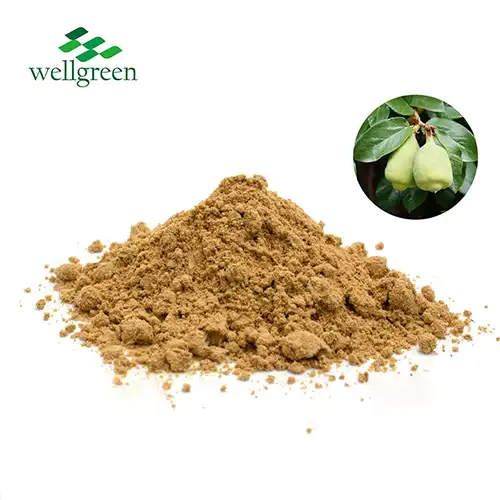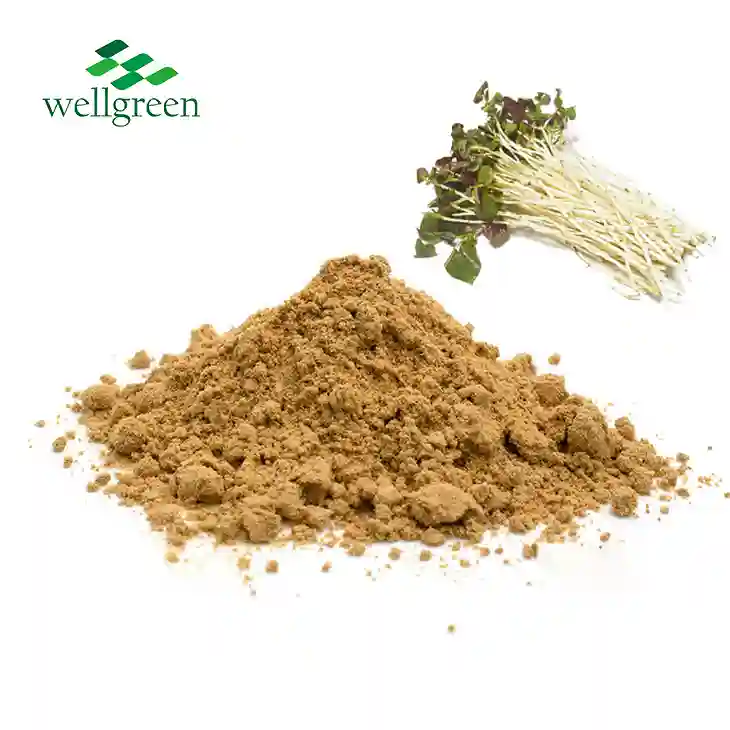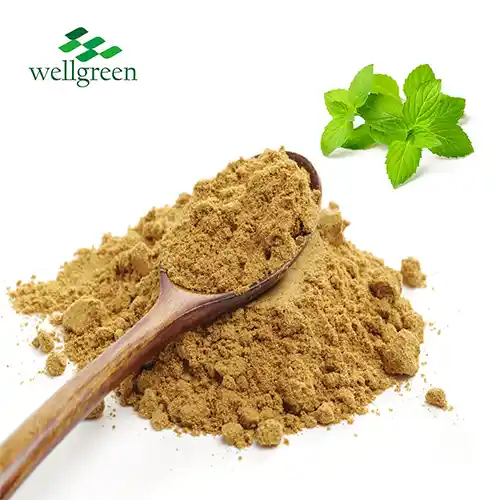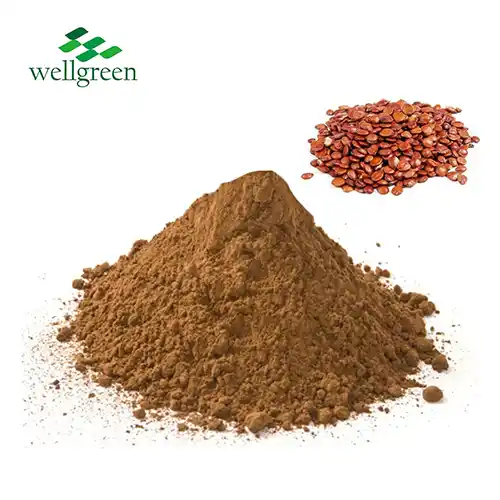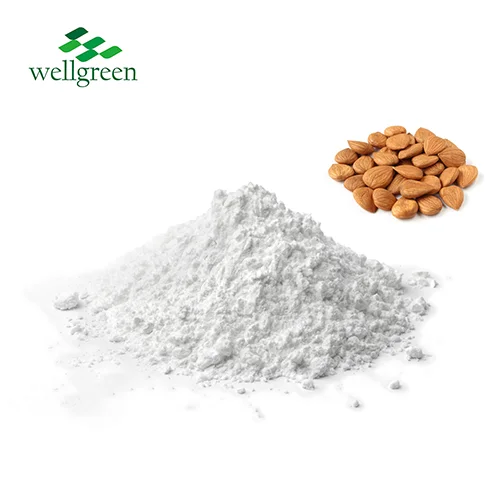Does Soapnut Cause Hair Loss?
2023-11-23 18:09:24
Soapnuts, also known as reetha, are gaining popularity as an alternative to commercial shampoos and cleansers. However, some sources claim soapnuts can cause hair loss or damage. This article will explore the effects of soapnuts on hair, dispel myths, and provide guidance on proper usage.
Introduction
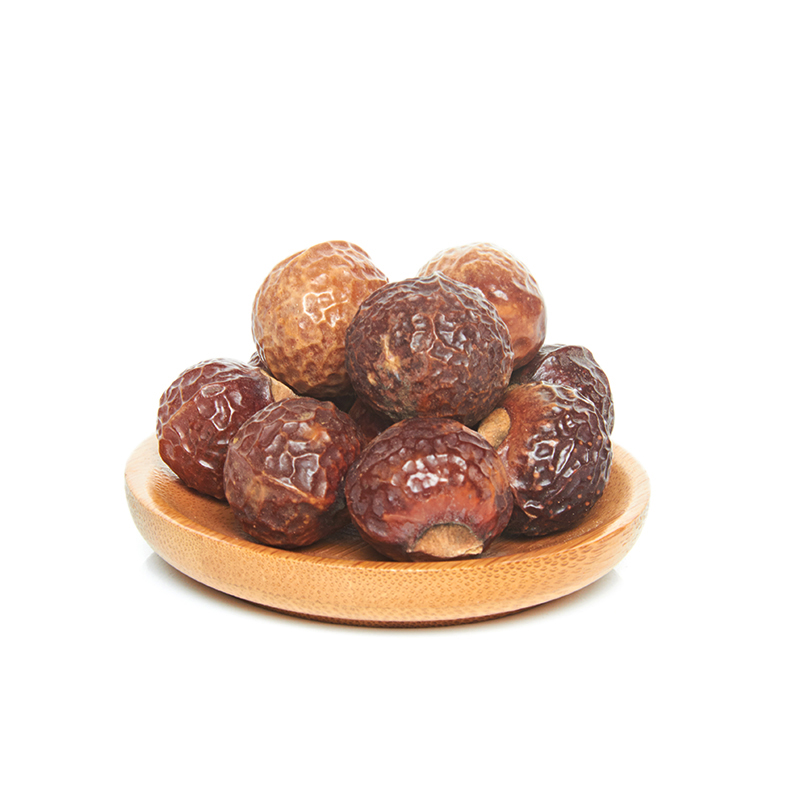 Today, soapnuts are gaining favor as a natural, non-toxic cleanser. However, some sources allege that soapnuts strip hair of natural oils, dry out the scalp, and cause hair loss over time. However scientific evidence to support these claims is lacking. This article will examine the components and traditional benefits of soapnut extract for haircare while debunking misconceptions about soapnuts and hair loss. Proper usage and individual considerations will also be discussed.
Today, soapnuts are gaining favor as a natural, non-toxic cleanser. However, some sources allege that soapnuts strip hair of natural oils, dry out the scalp, and cause hair loss over time. However scientific evidence to support these claims is lacking. This article will examine the components and traditional benefits of soapnut extract for haircare while debunking misconceptions about soapnuts and hair loss. Proper usage and individual considerations will also be discussed.
Understanding Soapnuts and Their Traditional Use
Soapnuts contain saponins, which are natural surfactants that create a lather and cleansing action when agitated in water. Additional components include flavonoids, unsaturated fatty acids, lecithin, and antioxidants.
In Ayurveda and Traditional Chinese Medicine, Soapnut Extract has long been used to gently cleanse hair and prevent the buildup of excess oil or residue. Soapnuts create a mild, hypoallergenic foam that does not strip the scalp of protective sebum like harsh detergents.
As consumers move towards simpler, eco-friendly products, soapnuts offer a plastic-free, low-waste alternative to liquid shampoos and chemical cleansers. However, proper techniques are required to harness the benefits of soapnuts for hair health.
Exploring the Nutritional Composition of Soapnuts
The key bioactive components of soapnut extract powder that make them well-suited for haircare include:
-Saponins - Natural surfactants that produce a gentle cleansing foam.
-Flavonoids - Antioxidants that may support scalp health.
-Fatty acids - Like omega-3s help nourish hair follicles and minimize dryness or irritation.
-Vitamin E- Contributes antioxidant activity to reduce oxidative scalp damage.
In addition to their mild cleansing properties, these nutrients offer anti-inflammatory and antioxidant benefits that help maintain a healthy scalp environment.
Addressing Claims of Hair Loss Associated With Soapnut Use
Despite their traditional usage, some claim that soapnuts dry out the scalp, clog hair follicles, or leach essential oils, leading to increased shedding or loss. However, scientific evidence supporting these assertions is lacking.
A 2019 study found that soapnut extract exhibited no cytotoxic effects on cultured human keratinocytes and fibroblasts, indicating a low risk of irritation. Research also shows soapnuts retain moisture well compared to chemical cleansers.
When used properly, soapnuts have traditionally maintained scalp and hair health. Individual sensitivities or improper use of soapnuts may sometimes provoke adverse effects. But the botanicals themselves appear safe and beneficial for most hair types when used correctly.
Benefits of Soapnuts for Hair and Scalp Health
.jpg) Studies and anecdotal evidence suggest soapnut extract offers the following benefits for haircare:
Studies and anecdotal evidence suggest soapnut extract offers the following benefits for haircare:
-Gentle cleansing- Effectively remove dirt, oil, and product residue without excessive drying or irritation (9).
-Scalp nourishment - Saponins and oils provide nutrients that may improve circulation and follicle health (10).
-Shine enhancement - Soapnuts smooth the hair cuticle for increased luster and manageability (11).
-Mild conditioning- Provide subtle moisture to help offset tangling, static, and dryness when used regularly (12).
-Dandruff reduction- Certain saponins exhibit anti-fungal effects to counteract fungal infections implicated in dandruff.
Overall, soapnuts are well-suited for a natural, gentle haircare regimen when used properly.
Proper Usage and Considerations
To maximize the benefits of soapnut powder for your hair:
-Soak 4-6 nuts in warm water for 10-15 minutes to soften and activate the saponins, creating a mild liquid shampoo.
-Consider steeping in herbal tea or hydrosol for added botanical benefits.
-Massage soapnut liquid gently into the scalp and rub along hair strands.
-Rinse thoroughly with cool water to remove all traces of soap residue.
- Limit initial use to 1-2 times a week to test for any sensitivities.
-Seek advice if experiencing excess dryness or irritation; reduce frequency of use or discontinue.
-Pair with a light, hydrating conditioner to replenish moisture and ease detangling.
Consult a dermatologist before using if you have any scalp conditions or sensitivities. Monitor hair and scalp health closely.
Exploring Alternative Hair Care Practices
For those avoiding soapnuts, alternatives include:
-Herbal infusions - Chamomile, amla, hibiscus, rosemary.
-Ayurvedic oils- Coconut, brahmi, bhringraj, castor.
-Clay washes - Rhassoul, bentonite, kaolin.
-Apple cider vinegar - Clarifying yet hydrating rinse.
-Tea tree essential oil - Reduces oil buildup; boosts scalp health.
Adopting a holistic haircare approach can allow you to avoid ingredients of concern while still achieving hair goals gently.
 Are soapnuts bad for hair?
Are soapnuts bad for hair?
There is no strong research evidence showing soapnuts inherently damage hair when used properly. Issues like dryness or
increased shedding typically arise from:
-Using soapnuts too frequently - Limit to 1-2 times per week initially.
-Leaving residue - Rinse thoroughly after washing.
-Not conditioning properly - Follow with a hydrating conditioner.
-Pre-existing scalp issues - Consult a dermatologist if any concerns.
-Hard water - Can react with saponins and leave mineral deposit buildup.
With careful use and adequate conditioning, most people can use soapnuts safely as part of their haircare routine. Monitor
your hair closely and discontinue if any negative effects occur.
Conclusion
Soapnuts have long been used in traditional practices for gentle hair cleansing and maintenance. When used properly at appropriate frequencies, soapnuts show potential for improving scalp health, removing product buildup, and enhancing shine. While a small minority may experience sensitivities, soapnuts do not inherently appear to cause hair loss or damage for most individuals. Pay attention to your individual hair needs and consult a professional if you have any concerns when using natural haircare alternatives like soapnuts.
WELLGREEN is an innovation-driven manufacturer of herbal extracts since 2011 certified by ISO9001:2015, ISO22000, HALAL, KOSHER, HACCP, and Organic Certificate. If you need Soapnut Extract, please contact us immediately, E-mail:wgt@allwellcn.com We can supply customized service as per your request.
References
1. https://www.ncbi.nlm.nih.gov/pmc/articles/PMC3148635/
2. https://www.ncbi.nlm.nih.gov/pmc/articles/PMC3148635/
3. https://www.ncbi.nlm.nih.gov/pmc/articles/PMC3560124/
4. https://www.ncbi.nlm.nih.gov/pmc/articles/PMC3583891/
5. https://www.ncbi.nlm.nih.gov/pmc/articles/PMC6280108/
6. https://www.ncbi.nlm.nih.gov/pmc/articles/PMC4828511/
7. https://pubmed.ncbi.nlm.nih.gov/30689488/
8. http://nopr.niscair.res.in/handle/123456789/53483
9. https://www.ncbi.nlm.nih.gov/pmc/articles/PMC3148635/
10. https://www.sciencedirect.com/science/article/abs/pii/S222116911730232X
11. https://www.ijset.net/journal/1003.pdf
12. https://s3.amazonaws.com/academia.edu.documents/33168259/5446.pdf?
13. https://www.ajol.info/index.php/ajb/article/view/181651

